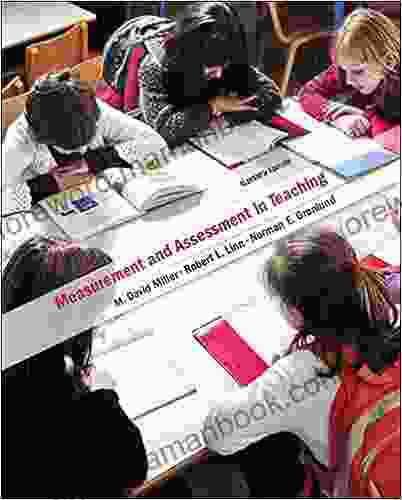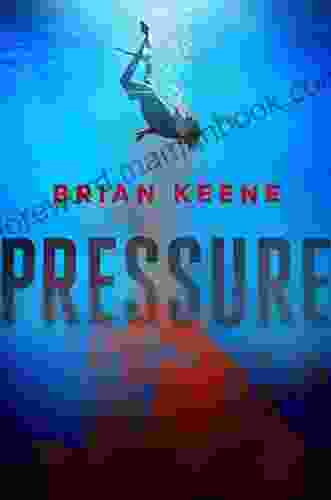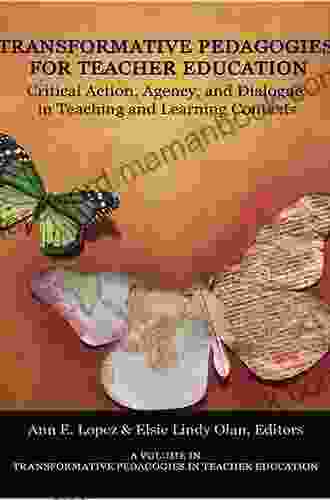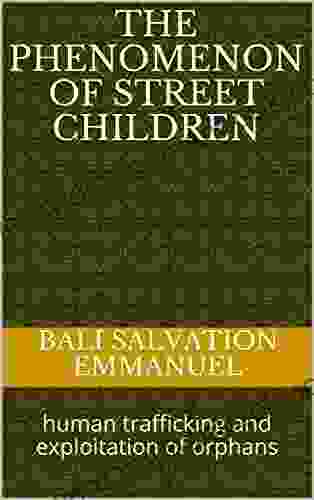Measurement and Assessment in Teaching: A Comprehensive Guide to Enhanced Learning Outcomes

4.4 out of 5
| Language | : | English |
| File size | : | 19080 KB |
| Screen Reader | : | Supported |
| Print length | : | 576 pages |
Measurement and assessment are integral components of effective teaching, providing educators with valuable insights into student learning and progress. By accurately measuring and assessing student knowledge, skills, and abilities, teachers can tailor instruction to individual needs, identify areas for improvement, and foster a positive and supportive learning environment.
This comprehensive guide delves into the multifaceted world of measurement and assessment in teaching, exploring various assessment techniques, their advantages and disadvantages, and how to effectively use them to enhance teaching practices and drive student success.
Measurement in Teaching
Measurement in teaching involves gathering data about student performance to quantify their understanding and progress. This data can be collected through a variety of methods, including:
- Tests: Formal assessments that typically involve written or oral questions to evaluate student knowledge and skills.
- Quizzes: Short, informal assessments used to check student comprehension and provide immediate feedback.
- Observations: Watching students during activities or tasks to assess their behavior, engagement, and learning.
- Portfolios: Collections of student work over time that demonstrate progress and growth.
- Projects: Extended assignments that require students to demonstrate their understanding through hands-on tasks.
Assessment in Teaching
Assessment in teaching involves using measurement data to make judgments about student learning. These judgments can be used to:
- Diagnose learning needs: Identify areas where students need additional support or enrichment.
- Evaluate student progress: Track students' growth over time and measure their achievement against defined standards.
- Provide feedback: Give students constructive criticism and guidance to improve their performance.
- Assign grades: Determine students' academic standing and progress towards course objectives.
- Inform instructional decisions: Use assessment data to adjust teaching strategies, modify curriculum, and provide targeted interventions.
Types of Assessment
There are various types of assessment, each serving different purposes and providing unique insights into student learning. These include:
Formative Assessment
Formative assessment occurs during the learning process and provides ongoing feedback to students and teachers. It helps identify areas for improvement and allows for timely adjustments in instruction to support student progress. Common formative assessment techniques include:
- Quizzes
- Observations
- Student self-assessments
- Peer feedback
- Exit tickets (short written responses to assess understanding before leaving class)
Summative Assessment
Summative assessment takes place at the end of a unit, course, or term to evaluate student achievement and progress towards specific learning goals. It provides a comprehensive overview of student learning and serves as a basis for assigning grades. Common summative assessment techniques include:
- Tests
- Projects
- Portfolios
- Final exams
- Performance assessments
Authentic Assessment
Authentic assessment evaluates student learning in real-world contexts and tasks. It involves assessing students' ability to apply knowledge and skills to solve problems, create products, or demonstrate performance in authentic settings. Common authentic assessment techniques include:
- Portfolios
- Projects
- Performance tasks
- Case studies
- Simulations
Effective Assessment Practices
Effective assessment practices are essential for maximizing learning outcomes. Teachers should consider the following principles when designing and implementing assessments:
Validity
Assessments should accurately measure what they are intended to measure and provide meaningful information about student learning.
Reliability
Assessments should produce consistent results when administered repeatedly or by different assessors.
Transparency
Students should be aware of the assessment criteria and expectations to ensure fairness and clarity.
Diversity
Assessments should use a variety of techniques to accommodate different learning styles and preferences.
Feedback
Assessments should provide timely and constructive feedback to students to promote self-reflection and growth.
Assessment in Online Learning
Technology has revolutionized assessment in online learning, offering a plethora of innovative tools and methods. Online assessments enable teachers to:
- Create interactive quizzes and tests with instant scoring and feedback.
- Use virtual environments for simulations and performance-based assessments.
- Track student progress through online platforms and analytics.
- Provide remote proctoring for secure testing.
- Foster collaboration and peer assessment through online discussion forums and wikis.
Assessment for Learning
Assessment should not only measure learning but also actively contribute to it. Assessment for learning involves using assessment data to identify areas for improvement and provide targeted support to students. This can be done through:
- Feedback loops: Using assessment results to inform teaching and provide tailored feedback to students.
- Student self-assessment: Encouraging students to reflect on their own learning and identify areas for growth.
- Peer assessment: Allowing students to assess each other's work and provide feedback.
- Remediation and enrichment: Using assessment data to provide additional support or challenges to students based on their individual needs.
Measurement and Evaluation in Teaching: A Dynamic Relationship
Measurement and evaluation are closely related but distinct aspects of teaching. Measurement involves collecting data about student performance, while evaluation involves using that data to make judgments about their learning. Together, measurement and evaluation provide a comprehensive understanding of student progress and inform effective instructional decision-making.
Measurement and assessment in teaching are indispensable tools for enhancing student learning outcomes. By understanding the principles, techniques, and effective practices of assessment, teachers can accurately gauge student progress, provide meaningful feedback, inform instructional decisions, and create a positive and supportive learning environment. As the field of education continues to evolve, measurement and assessment will remain essential components of effective teaching, empowering educators to maximize student potential and foster a lifelong love of learning.
4.4 out of 5
| Language | : | English |
| File size | : | 19080 KB |
| Screen Reader | : | Supported |
| Print length | : | 576 pages |
Do you want to contribute by writing guest posts on this blog?
Please contact us and send us a resume of previous articles that you have written.
 Top Book
Top Book Novel
Novel Fiction
Fiction Nonfiction
Nonfiction Literature
Literature Paperback
Paperback Hardcover
Hardcover E-book
E-book Audiobook
Audiobook Bestseller
Bestseller Classic
Classic Mystery
Mystery Thriller
Thriller Romance
Romance Fantasy
Fantasy Science Fiction
Science Fiction Biography
Biography Memoir
Memoir Autobiography
Autobiography Poetry
Poetry Drama
Drama Historical Fiction
Historical Fiction Self-help
Self-help Young Adult
Young Adult Childrens Books
Childrens Books Graphic Novel
Graphic Novel Anthology
Anthology Series
Series Encyclopedia
Encyclopedia Reference
Reference Guidebook
Guidebook Textbook
Textbook Workbook
Workbook Journal
Journal Diary
Diary Manuscript
Manuscript Folio
Folio Pulp Fiction
Pulp Fiction Short Stories
Short Stories Fairy Tales
Fairy Tales Fables
Fables Mythology
Mythology Philosophy
Philosophy Religion
Religion Spirituality
Spirituality Essays
Essays Critique
Critique Commentary
Commentary Glossary
Glossary Bibliography
Bibliography Index
Index Table of Contents
Table of Contents Preface
Preface Introduction
Introduction Foreword
Foreword Afterword
Afterword Appendices
Appendices Annotations
Annotations Footnotes
Footnotes Epilogue
Epilogue Prologue
Prologue Sarah Wisseman
Sarah Wisseman A F Stewart
A F Stewart Kathy Eckdahl
Kathy Eckdahl Tara Beagan
Tara Beagan Tieghan Gerard
Tieghan Gerard Iain Anderson
Iain Anderson Christine Mc Sween
Christine Mc Sween Leo Lerman
Leo Lerman Bryant Terry
Bryant Terry James Turk
James Turk Anderson A Jimmerson
Anderson A Jimmerson Kristen Hong
Kristen Hong Orna Ross
Orna Ross Garden Knits
Garden Knits Jonas Saul
Jonas Saul John Sonmez
John Sonmez Nasreen Munni Kabir
Nasreen Munni Kabir Don Johnston
Don Johnston Will Adams
Will Adams J A Carter Winward
J A Carter Winward
Light bulbAdvertise smarter! Our strategic ad space ensures maximum exposure. Reserve your spot today!
 Terry BellFollow ·6.6k
Terry BellFollow ·6.6k Willie BlairFollow ·12.9k
Willie BlairFollow ·12.9k Blake BellFollow ·19k
Blake BellFollow ·19k Allan JamesFollow ·11.1k
Allan JamesFollow ·11.1k William ShakespeareFollow ·9.2k
William ShakespeareFollow ·9.2k Corbin PowellFollow ·16.3k
Corbin PowellFollow ·16.3k Darren NelsonFollow ·11.5k
Darren NelsonFollow ·11.5k Hunter MitchellFollow ·17k
Hunter MitchellFollow ·17k

 Chase Simmons
Chase SimmonsCompletely Unputdownable Serial Killer Thriller:...
Prepare yourself for an...

 Bruce Snyder
Bruce SnyderThe Likeness: A Spine-Chilling Crime Novel by Tana French
Step into the Shadows of a Twisted...

 Langston Hughes
Langston HughesDiscover the Enchanting World of Cute Animals: A Journey...
Welcome to the...

 Adrian Ward
Adrian WardDelving into the Profoundly Disturbing World of No Longer...
In the realm of horror manga, Junji Ito...

 Edgar Allan Poe
Edgar Allan PoeIllustrated Magical Recipes For Wizards And Witches:...
In the realm of witchcraft and wizardry,...
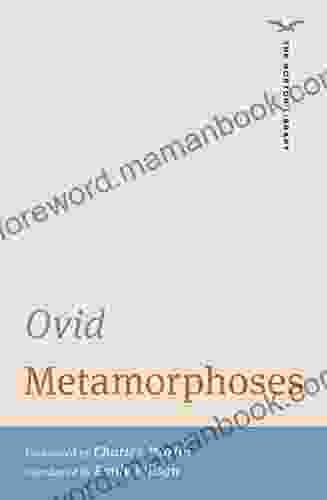
 Joe Simmons
Joe SimmonsMetamorphoses: A Masterpiece of Ancient Greek Mythology...
Metamorphoses, a seminal work of...
4.4 out of 5
| Language | : | English |
| File size | : | 19080 KB |
| Screen Reader | : | Supported |
| Print length | : | 576 pages |


